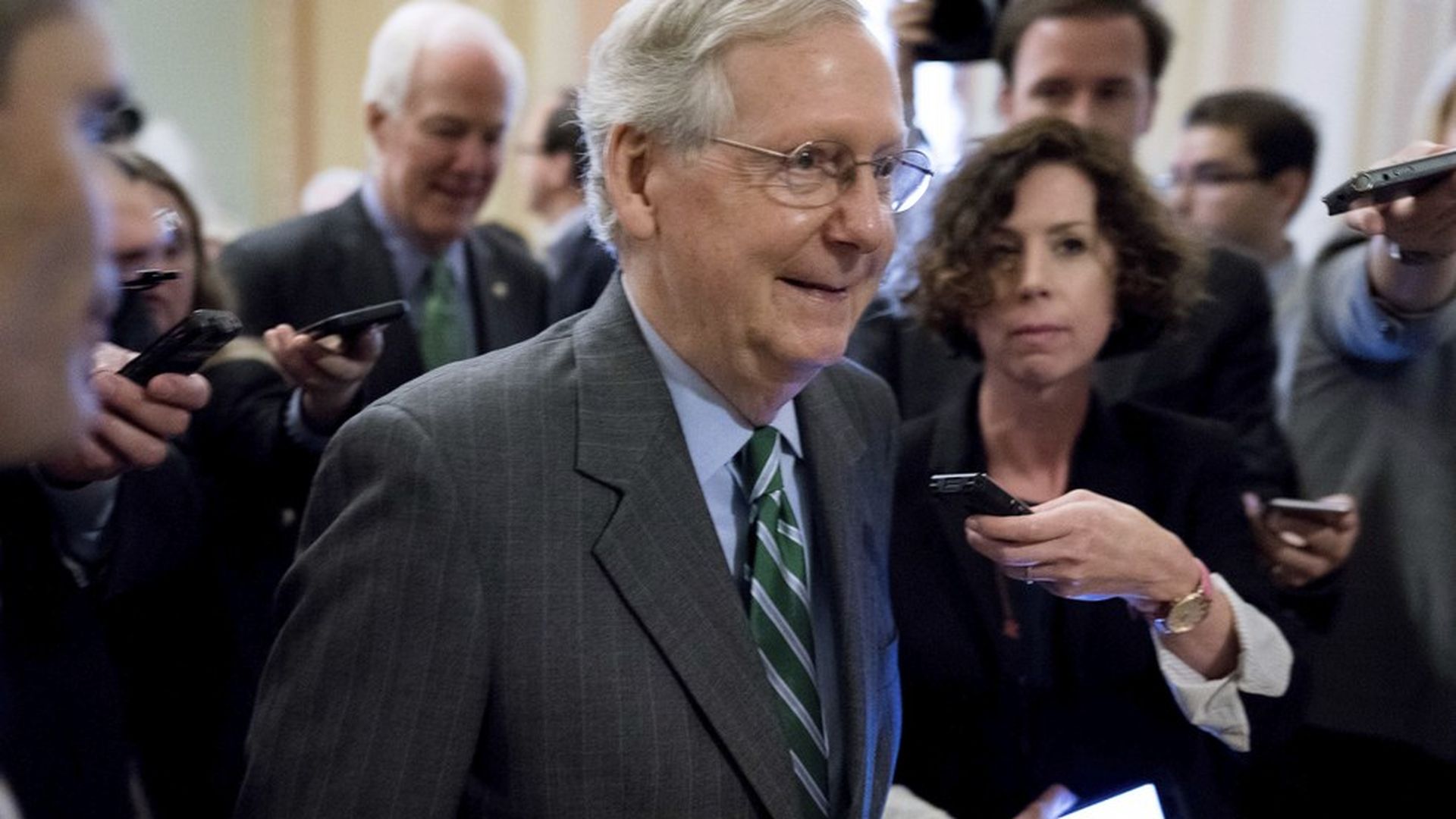How Senate's health bill could disrupt small biz coverage
Add Axios as your preferred source to
see more of our stories on Google.

AP Photo/Andrew Harnik
A little-noticed provision of the Senate health care bill — one that provides new insurance options for small businesses and the self-employed — could have big consequences, potentially making it harder for sick people to get affordable coverage.
- What the experts say: The provision, as written, could cause "fragmentation of the market resulting from an unlevel playing field. This is likely to lead to cherry-picking, adverse selection, and increased costs for sicker individuals," the American Academy of Actuaries wrote in a letter to members of Congress and governors.
- This echoes concerns about Sen. Ted Cruz' proposal to let some insurers offer plans that don't comply with the Affordable Care Act's regulations. "This is kind of a baby version of the Cruz amendment, in that it creates a parallel, much more loosely regulated insurance market," Larry Levitt, vice president of the nonpartisan Kaiser Family Foundation, told me.
- What we're watching: Whether the provision, which establishes "small business health plans," starts to get more attention among Republican senators. Although conservatives support the idea, wary moderates could be turned off by its potential consequences.
The Senate bill would allow small businesses and self-employed workers to use a new type of health plan — essentially a form of association health plans. And, unlike policies sold in the existing small-group market, those new plans wouldn't have to follow some of the ACA's regulations.They wouldn't have to abide by the same protections for people with pre-existing conditions, nor would they be required to cover the ACA's essential health benefits.
Some experts are worried about how all this would work:
- Small employers could get coverage from these small-business health plans when their employees are healthy, but then move back into the normal small-group market — which is subject to the ACA's regulations — when their employees are sick. Keeping healthy people out of the traditional small-group market could make it more expensive and less predictable.
- Self-employed people could make the same switch, which could disrupt the individual market in some states.
- This could cause instability and premium hikes in the individual and small-group markets. In 2014, one-fifth of the people who bought coverage through the ACA's exchanges were small-business owners or self-employed.
- A Kaiser Family Foundation brief explores the issue in more depth.
Yes, but:
- Obama-era regulations could mitigate some of the potential disruption. Those rules allowed some people — including many healthy people — to keep their pre-ACA coverage or sign up for new policies that also didn't comply with all of the law.
- Something similar is already happening, on a small scale, without dire consequences: Employers who self-insure do not have to follow all of the ACA's regulations. But only a small percentage of businesses self-insure. A far greater number would be eligible for the GOP bill's new offerings.
A potential fix: "If the rules governing [association health plans] were consistent with those governing non-[association health plans], there would be fewer concerns about market fragmentation," the actuaries wrote.
